
by North Shore Child & Family Guidance Center | Feb 10, 2023 | Blog
North Shore Child & Family Guidance Center is so grateful to those who donate to our mission of bringing hope and healing to kids and families struggling with mental health challenges such as depression, anxiety and suicidal thinking. Without your generosity, we couldn’t provide these lifesaving services.
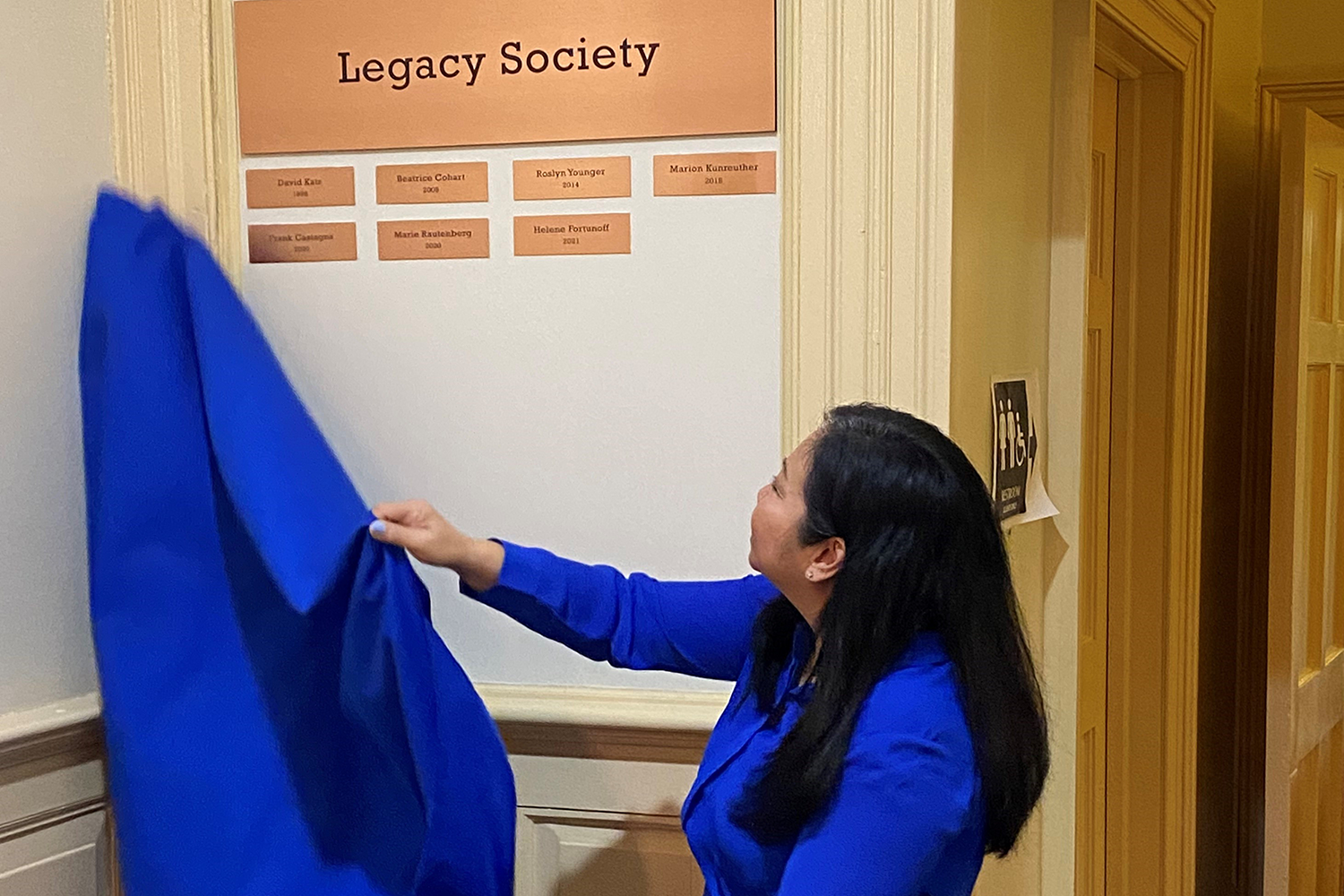
There are so many ways to give, in ways both large and small. Some of our donors choose to put us in their estate plans, like our dear friends highlighted on our Legacy Wall of Respect at our Roslyn Heights headquarters. Others have made substantial gifts to support our Douglas S. Feldman Suicide Prevention Project, and they are honored with beautiful brass name plaques on our Butterfly Wall.
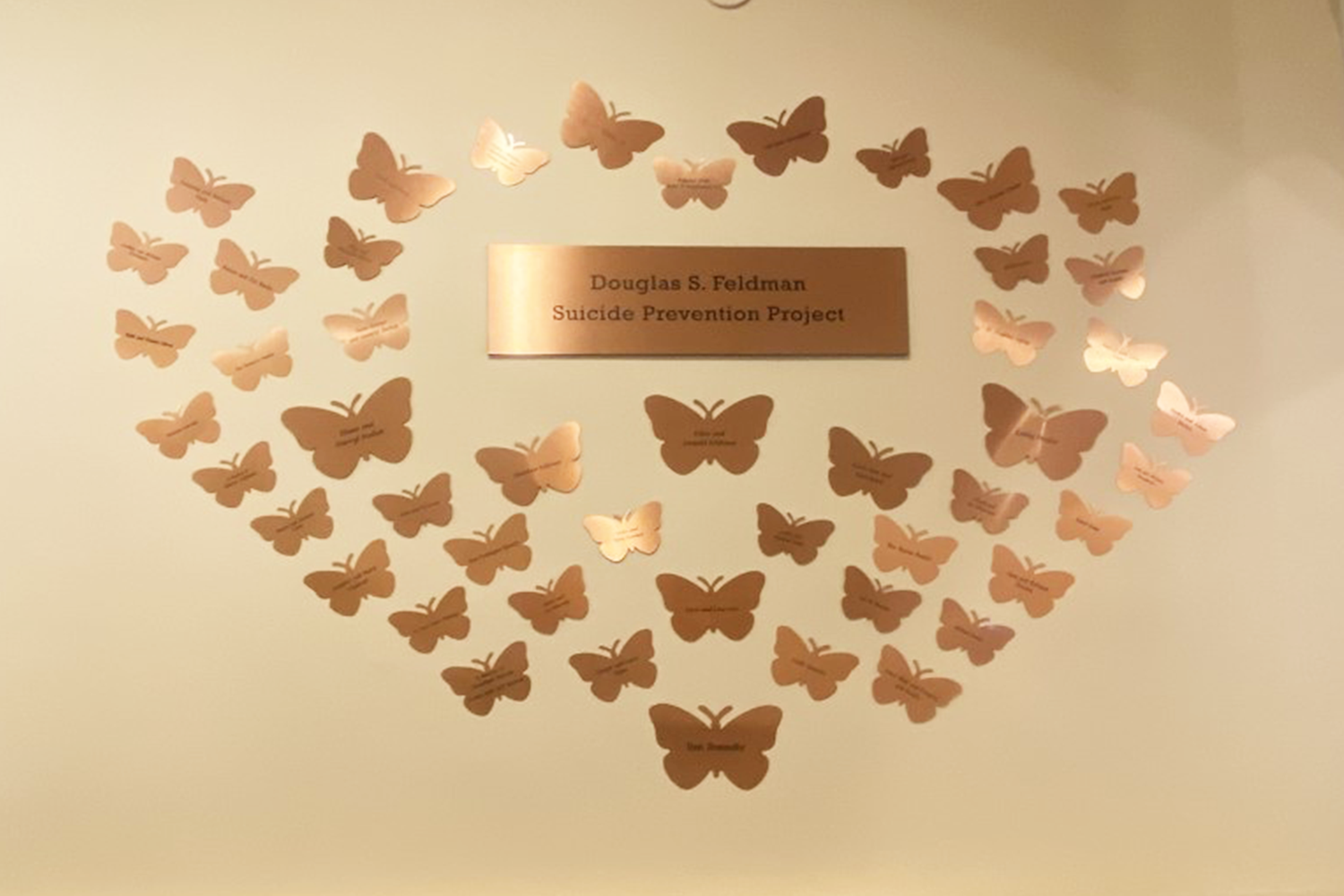
Others contribute through a Qualified Charitable Distribution, also commonly known as an IRA Charitable Rollover gift.
Many of our supporters buy tickets and/or sponsorships to our special fundraisers held throughout the year, including our Spring Luncheon, which will be held on April 27th, our Jonathan Krevat Memorial Golf & Tennis Classic on June 5th and our spectacular Annual Gala on September 28th.
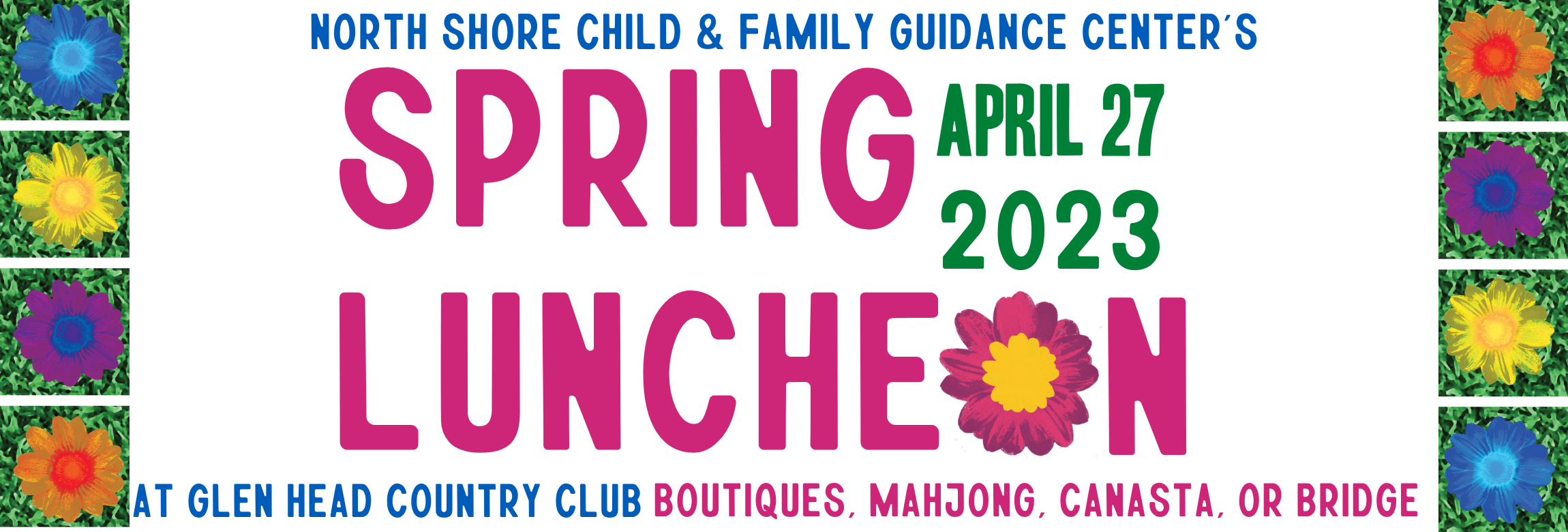
Financial support also comes to us in the form of corporate matching gifts and/or workplace giving opportunities. Check to see if your company can match your gift.
In addition, monthly donations through our $10 on the 10th program, memorial gifts and gifts in honor of a loved one are always appreciated.
But financial contributions aren’t the only way to support our work. Options include joining one of our event committees, volunteering at our Children’s Center at Nassau County Family Court or connecting us with your company.
Whatever way you give back, please know that your generosity means the world to us – and to the children and families we are so privileged to serve.
We’re here for them because YOU are here for us. Thank you for your generosity!
If you wish to learn more about how to make a gift of any kind, please contact Lauren McGowan, Director of Development, at 516-626-1971, ext. 320 or email her at lmcgowan@northshorechildguidance.org
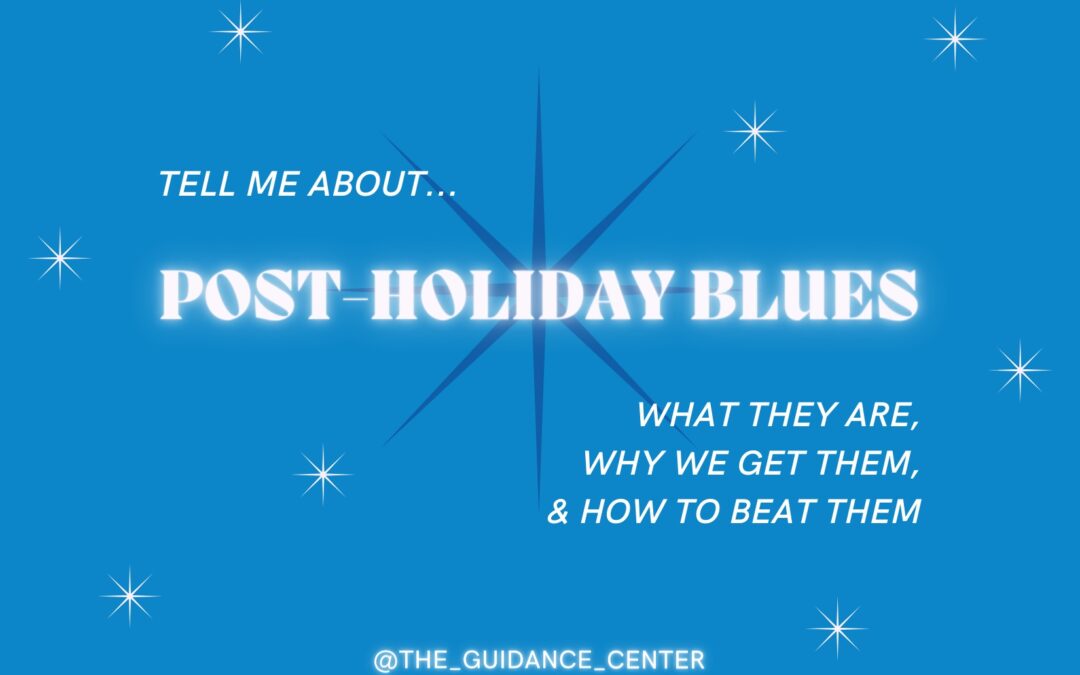
by North Shore Child & Family Guidance Center | Feb 1, 2023 | Blog
By Guest Blogger Aieshah Ashfer
As we all start to get used to the rhythm of the new year by embracing new beginnings, we may begin to feel as if we are in an unwanted emotional slump. Going back to work, school and the rigid routines we’ve formed for ourselves after a period of rest and relaxation isn’t easy. This is especially the case when bouncing back from the holiday season. The letdown we feel after the holidays can be described as the “post-holiday blues.”
What are post-holiday blues?
Post-holiday blues share many of the same characteristic symptoms of an anxiety or mood disorder: insomnia, low energy, irritability, difficulty concentrating and anxiousness. The abrupt withdrawal of stress hormones after a major event – in this case, the holidays – can greatly impact our biological and psychological well-being. Even if your holidays weren’t as merry as they could have been, the brain heavily exaggerates the realities of day-to-day life, making the return to the mundane seem profoundly more anxiety-inducing and saddening than it actually is.
What causes post-holiday blues?
The exact cause of these feelings will vary from person to person, but often they are triggered by unrealistic expectations of what the holiday season should be like. Post-holiday blues are often the result of failing to put boundaries on demands and then feeling sad about the outcome.
How do I cope with post-holiday blues?
There are several ways to cope if you feel down after the holidays. One way to do this is through a small gratitude practice. List the things you are thankful for and make that a daily practice combined with meditation; that simple act can really reframe the way that you manage your day and manage some of these stressors. Exercise can also help you deal with feelings of sadness after the holidays. Physical activity reduces stress and stimulates the production of feel-good chemicals, also known as endorphins. So can volunteering and giving back to your local community. It can also help to seek out humor, such as watching funny movies or TV shows, because laughter releases endorphins. Finding a trusted person to talk to about your feelings, such as a friend or a therapist, is especially beneficial. It can be harder to manage sadness or guilt if you keep them bottled up, but talking through those feelings can help to validate them.
Dealing with post-holiday blues isn’t easy. It is normal to feel these emotions after a big anticipated event like the holidays, but knowing that there are numerous healthy ways to cope with this letdown makes it much easier to get through it.
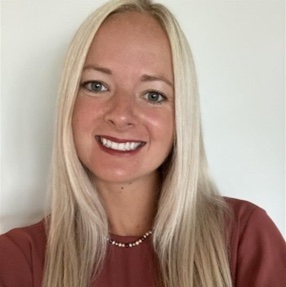
by North Shore Child & Family Guidance Center | Feb 1, 2023 | Blog
By Guest Blogger Aieshah Ashfer
Aieshah: Can you tell me what you do daily as a High School Social Worker?
Mrs. Sheets: Every day is different. I typically have each period of the day scheduled by students who want to come in for a group session or an individual session. The framework that I use is dialectical behavioral therapy (DBT) and cognitive behavioral therapy (CBT) and I also utilize the strengths perspective. I use DBT to help students understand and accept their difficult feelings, and learn skills to manage them. CBT is used to connect thoughts, behaviors, and emotions together. I use the strengths of each student and treat them with unconditional positive regard in our sessions. Overall, I try to destigmatize reaching out for help and I try to make the environment seem comfortable and warm for students to be able to reach out.
Aieshah: You are around students all the time. What are the main stressors in high school? Any specific ones this time of year?
Mrs. Sheets: At our school, I think there is a lot of pressure to be successful. That’s the number one stressor that I see here. I think students internalize that pressure and then what comes out is anxiety and depression, fear of failure, and perfectionism. At times I also see students neglecting their sleep, social relationships, and passions; these are all the things that make us human. I think sometimes we focus so much on being intelligent and successful, that we forget the other things that balance us out. I also feel students can’t talk to people in their lives for support and I think sometimes they feel what they’re going through is not valid. At this time of year, midterms seem to highlight students’ pressure on themselves and their need to succeed as well as the neglect of their health. These are the biggest stressors.
Aieshah: What are some ways to properly cope with the stress of finals and midterms?
Mrs. Sheets: When it comes to big tests like midterms, finals and even SATs, I feel that preparation is key. The best way to take these on is to make a schedule to study regularly weeks before. I see a lot of students at times will procrastinate and cram all their studying for the last day, and I think that builds even more pressure. Even studying for five minutes a day is better than not studying at all and cramming. Let yourself balance your activities so that you’re not sacrificing sleep and social interaction. Everything should be within balance, especially during these testing seasons. Since midterms also come after the holidays I think we’re left with a lot of mixed emotions; around the holidays can be one of the most depressing times of the year. Self-care is tuning into that and recognizing that this time of the year is stressful, and doing something that helps you; this can be listening to music or spending time talking to your friends. Have a little thing to look forward to each day, like meditating or exercise.
Aieshah: Is there a quick meditation technique you would recommend for stressed-out students?
Mrs. Sheets: I think you mentioning “quick” is very important. Students often say they can’t take the time out to meditate during the day. This is where our technology comes in and is so valuable to us. If you just go on YouTube to find a one-minute meditation tutorial, you’re able to take a short break and relax. I tell students who don’t want to compromise any time that they can meditate while they’re doing any task– for example, brushing their teeth. Put on a one-minute meditation video so you’re able to take a break. Even a small meditation break is an important one.
Aieshah: What are some resolutions students should keep to avoid academic stress and burnout for the new year?
Mrs. Sheets: I think a resolution students should set is to focus on progress, not perfection. This can be done through positive self-talk; it sounds unrealistic at times but can really bring us up from negative places. Even when it comes to homework, instead of saying “I have to do this,” start to say “I want to do this because I want to earn a positive grade.” Keeping a neutral mindset after setbacks as well can really help you in the future. But being able to talk to yourself positively is extremely important and will help you to more easily accomplish tasks. Positive self-talk and progress over perfection should be the things we bring into 2023.
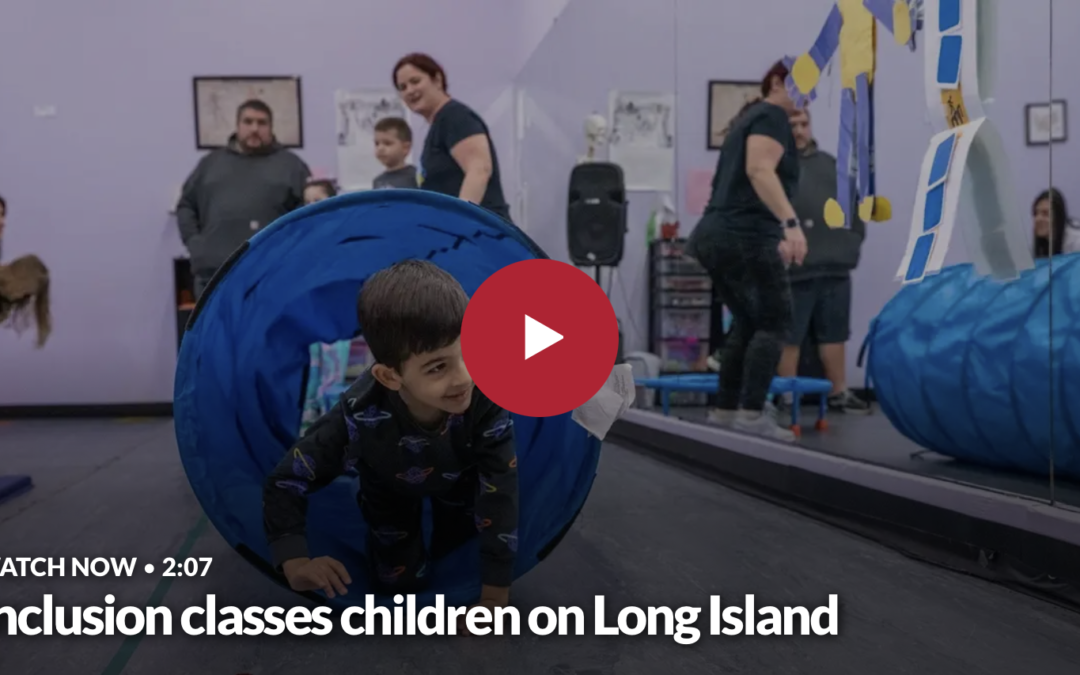
by North Shore Child & Family Guidance Center | Jan 30, 2023 | In The Media, Newsday
By Beth Whitehouse, Newsday.com, January 25, 2023
From obstacle courses to cooking classes to horseback riding, several Long Island groups offer extracurricular activities that help children on the autism spectrum feel more at ease while they’re having fun.
The activities may provide higher staff ratios or have directions and processes broken down into parts to help out participants, organizers say, and the age range goes from toddlers all the way into the teen years.
Here are some places that offer fun recreational options geared toward kids with special needs:
Cecelia Cernilli, 6, from Rockaway, participates in a sensory activity with her dad Matt Cernilli at Actions Speak yoga class at Positions Dance Studio in Babylon on Jan. 8. Credit: Morgan Campbell
A speech language pathologist and an occupational therapist run three activities for children of different ages. Yes I Can is an obstacle-course challenge for children ages 5 to 8; it’s a class of eight to 10 children with a lot of structure, consistency and routine, says Lauren Vaughan, an occupational therapist.
Yoga and You is a preschool option during which children learn emotional regulation; siblings who are not on the spectrum are welcome to attend as well. Tiny Titans is for ages 18 months to 3 years who need work on language development skills and calming strategies even though they might not yet have an official diagnosis of autism, says Frieda Shmuel-Markowitz, the speech language pathologist.
Classes are held at Positions Dance Studio, 264 Deer Park Ave., Babylon, on Sunday mornings or New York Dancers Studio, 388 Merrick Ave., East Meadow, on Thursday evenings. A full six-week series is $185 and includes a 20-minute Zoom consultation with the parents prior to the course; a three-week series is $100 and individual classes are $40. For more information or to register, call 516-305-7227 or visit actionsspeakkids.com.
The Family Center for Autism, 1517 Franklin Ave., Garden City
At The Family Center for Autism, children, tweens and teens can participate in programs including yoga, Zumba, music, cooking classes and more, says Tina Moreno, director of development. The center particularly has focused on the needs of high school students ages 14 to 18, Moreno says.
“We felt that was the black hole, they just fell through the cracks. They weren’t getting invited to parties, they weren’t going to hang out on a Friday night,” she says.
The center’s weekly Friday Night Social Scene from 5:30 to 8:30 p.m. is a very popular offering, during which participants do arts and crafts, play video games and make friends, says Lonnell Harrington, assistant director. For more information and pricing, which varies, call 516-355-9400 or visit familycenterforautism.com.
Participants study a different artist every week at during the Spirit of Huntington Arts Center’s drop-in ArtABILITY classes for ages 5 to 17, which include a slideshow of the artists’ art, perhaps a video clip of the artist working, and an art project in the style of the artist, says Michael Kitakis, executive director. All of the students’ creations may be included at a periodic art exhibit, he says.
Classes are in person from 10:30 to noon on Saturdays; a virtual option allows students to take the class at 12:30 p.m. Saturdays, with boxes of material sent to their homes in advance. Classes are $75 each.
The center also offers a six-week series of clay classes during which students make cups, bowls, decorations and more, with advanced students about to use pottery wheels; cost is $250 plus a $40 fee for the clay. A Clay Partners class at 11:30 a.m. Saturdays allows ages 5 and older to collaborate on projects with a parent for the same fee that includes both participants. For more information, call 631-470-9620 or visit spiritofhuntington.com.
HorseAbility, on the campus of SUNY Old Westbury, 223 Storehill Rd.
HorseAbility’s adaptive riding program offers group or private lessons adapted to the needs of the individual. Lessons are 30 or 45 minutes and are geared to offering physical, mental and social rewards, including interacting with the animals and the volunteers, says Katie McGowan, founder and executive director. For ages 4 and older. Cost is $55 per group lesson and $90 per private lesson, but lessons are offered as a series. For more information, call 516-333-6151 or visit horseability.org.
Long Island Children’s Museum, 11 Davis Ave., Garden City
Once a month, the Long Island Children’s Museum opens after hours for families with children on the spectrum or with other special needs; admission is free for the whole family once families preregister on the museum website, says Maureen Mangan, director of communications. During Friendly Hours the museum lighting and sound is reduced. The next session is from 6 to 8 p.m. on Feb. 24. For more information, call 516-224-5800 or visit licm.org.
These programs are designed for family members of children with special needs:
GASAK — Grandparent Advocates Supporting Autistic Kids, The North Shore Child and Family Guidance Center, 80 North Service Rd., Manhasset
The North Shore Child and Family Guidance Center offers a free monthly support group for grandparents who have grandchildren on the spectrum; it meets in person or on Zoom at 10:30 a.m. on the last Thursday of every month. “The grandparents … help each other, give each other ideas and suggestions. It’s a place they can share their fears and their little victories,” says facilitator Sue Cohen. Their friends who have typical grandchildren might not understand what a big deal it is when they express pride in their grandchildren’s accomplishments, Cohen says. For information, call 516-484-3174 ext. 402 or visit northshorechildguidance.org.
Sibshops siblings support group, Sensory Beans, 3309 Merrick Rd., Wantagh
Children ages 5 to 9 who have siblings with special needs can share their experiences — both good and challenging — with other kids who can relate during the monthly Sibshops gathering. Meetings include play, pizza and a drink and cost $30 per child. For more information, call 516-308-1462 or visit sensorybeans.org.
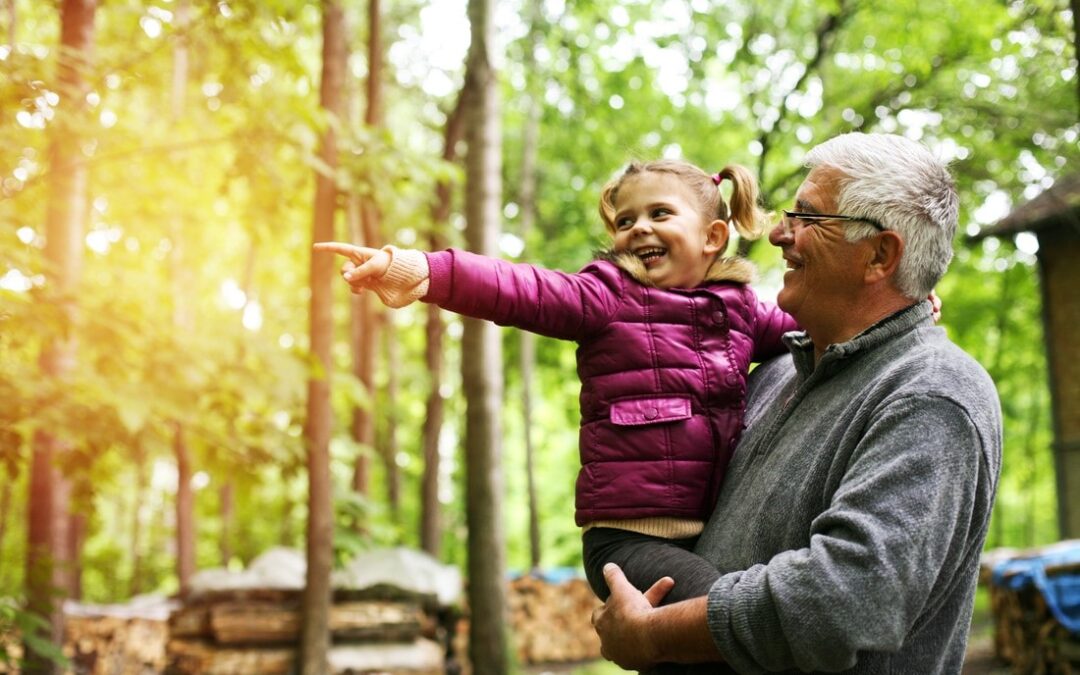
by North Shore Child & Family Guidance Center | Jan 25, 2023 | Blog
When a child faces a mental health challenge, the entire family is impacted. But while people may sympathize with parents and siblings, they often forget that grandparents also struggle with feelings of sadness and helplessness.
That’s why North Shore Child & Family Guidance Center (the Guidance Center) runs a free support group just for grandparents whose grandchildren are on the autism spectrum: GASAK, for Grandparent Advocates Supporting Autistic Kids.
GASAK’s mission is to support, inform and advocate for grandparents with autistic grandchildren. At meetings held on the last Thursday of each month, GASAK participants network and share information on issues critical to families impacted by autism. New members are welcome to join at any time.
While the program isn’t new, it recently returned to in-person meetings at the Guidance Center’s Marks Family Right from the Start 0-3+ Center in Manhasset after being virtual since the start of the pandemic.
While there are many programs for parents of autistic children, few if any address the specific issues that come up for grandparents, said Dr. Sue Cohen, Director of Clinical Services at Right from the Start. “Sometimes the parents are overwhelmed dealing with their children’s needs,” she said. “At GASAK meetings, grandparents can share their own concerns with their peers.”
One GASAK member said, “A lot of times your friends can’t relate to what you’re going through, but when you walk into the GASAK group, you feel comfortable instantly. Nobody judges you.”
The program occasionally features guest speakers, including education lawyers, social workers, special education advocates and others. “When a grandparent leaves a meeting,” said Cohen, “they walk away with information that can make a huge difference in the lives of their children and grandchildren.”
But the camaraderie members experience is perhaps the most important benefit of the group. Case in point: one grandmother who has two autistic grandsons who were nonverbal until they were three years old. When one of them said “Mom” for the first time, the GASAK group celebrated her good news. “There is such compassion among members,” she said. “And by sharing our worries as well as our joyful moments, we give new members hope.”
In addition, the Guidance Center provides a variety of therapeutic services for children on the autism spectrum, as well as their parents and other family members. They also provide testing for preschool-age children to young adults.
To learn more about the GASAK group and all the Guidance Center’s services, contact Cohen at 516-484-3174 or email scohen@northshorechildguidance.org.
About Us:
As the preeminent not-for-profit children’s mental health agency on Long Island, North Shore Child & Family Guidance Center is dedicated to restoring and strengthening the emotional well-being of children (from birth – age 24) and their families. Our highly trained staff of psychiatrists, psychologists, social workers, vocational rehabilitation counselors and other mental health professionals lead the way in diagnosis, treatment, prevention, training, parent education, research and advocacy. The Guidance Center helps children and families address issues such as depression and anxiety; developmental delays; bullying; teen pregnancy; sexual abuse; teen drug and alcohol abuse; and family crises stemming from illness, death, trauma and divorce. For nearly 70 years, the Guidance Center has been a place of hope and healing, providing innovative and compassionate treatment to all who enter our doors, regardless of their ability to pay. For more information about the Guidance Center, visit www.northshorechildguidance.org or call (516) 626-1971.








